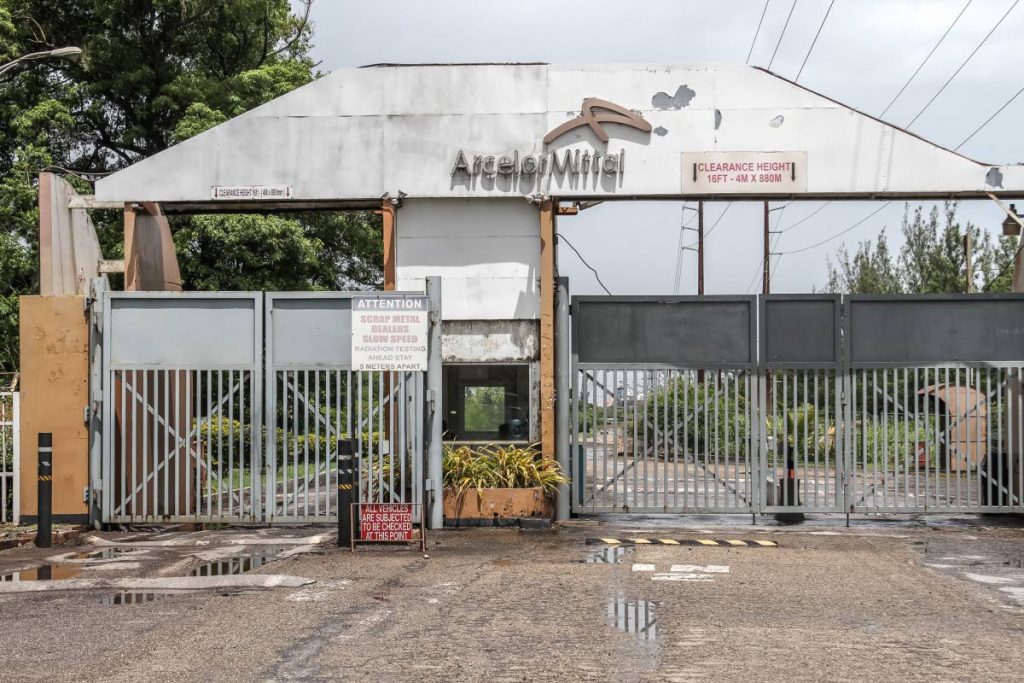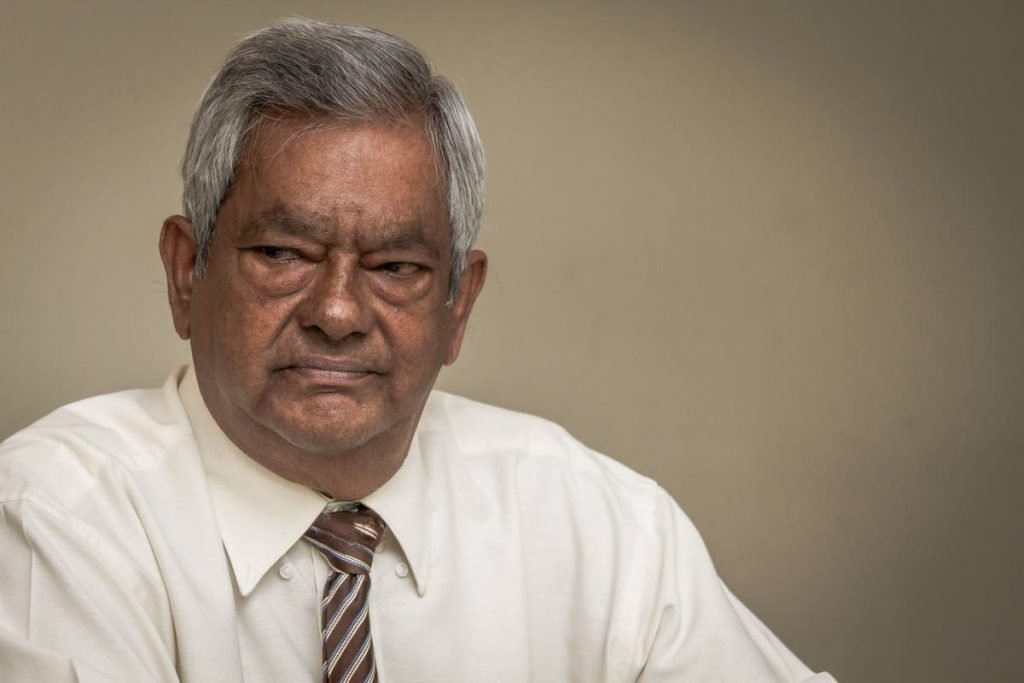Open up and let us bid

Two years after steel giant ArcelorMittal closed its steel mill, a new company, Macarri Steel Holdings Ltd, wants to step in and fill that vacuum — in the national interest.
“Macarri is a special-purpose company formed solely to acquire the Mittal assets. We are backed by an American corporation called UCS Gulf Services,” Unanan Persad, one of Macarri’s directors, told Business Day. The company’s aim is to purchase the Mittal plant, currently in liquidation, and get it up and running in three months, with a ten-year plan to become a fully-operationalised steelmaking unit, from processing ore to manufacturing speciality steel.
There’s just one problem. And it’s a big one — the company has missed the bid deadline set by the liquidator. It’s now appealing to the liquidator to reopen the bid process, through legal persuasion and even appeals to Government.
“The liquidator, who acts on behalf of ArcelorMittal, hasn’t acknowledge the bid. We are making this bid for the good of TT. We’ve told the liquidator what we want to do and people can hold us to that,” Persad said.

Persad said Macarri’s information is that the winning bidder, NuIron Ltd, which manufactures direct reduced metal for its parent company NuCor Inc, in the US, has bid US$20 million for the plant. Macarri has bid US$27 million.
“We can show the liquidator a $350 million standby letter of credit and we’ve started negotiating with local banks so we are credible; $350 million is not a little bit of money. Do you know what the country can do with that in this economy?” he said.
Macarri was incorporated in February in the British Virgin Islands and, Persad said, is an ex-employee company “set up with men with a lot of experience in the steelmaking business.”
Among them is TJ Samuel Varghese, listed as the managing director on the company’s website. Varghese, Persad said, was responsible for taking the plant in the 1980s — then Caribbean Ispat — beyond its nameplate capacity. Persad as well has nostalgic ties to the company — when it was first being built, his family’s firm, Coastal Engineering, was the contractor.
But more than that, Macarri has plans to re-employ all former Arcelor employees who are willing and able to work, and in the process, relaunch the glory days of steelmaking in Trinidad.
Persad said if the company gains control of the facility, it believes it can get it back to production in just two months. They have a target three-year ramp up period and in eight years expect to go into full production with a 500,000 tonne facility for direct reduced iron and hot-briquetted iron, key raw materials for steelmaking. Within that time, they also want to add a ferro alloy plant (iron and non-iron metal combinations used to create steel with different strengths and features), as well as stainless steel production capacity, all in about ten years. At its peak, it hopes to employ 5,000 people and inject US$1.2 billion into the economy.
Macarri even already has its markets, targeting China and the Far East where environmental pollution policies are undergoing a transition period as the countries convert their factories to be compliant.
Also its US financial backer has already claimed whatever speciality steel products the company makes, is willing to put up US$100 million for investment and to forego concessions for the opportunity to start producing as soon as possible. “We are so confident in our value chain that we do not want any special concessions from the government. We are willing to pay market price for utilities and gas. And we’ve told them that,” Persad said.
Liquidator responds
The bid round for the plant closed at the end of September, 2017, a year and a half after the company was shuttered.
Persad and Macarri acknowledged that they missed the bid, but since the bid round closed, the plant remains shuttered because the winning bid is still being processed. Persad alleged that the lock-out period, during which final negotiations and approvals have to be settled, has been extended five times.
“We thought it was gone, because it’s been so long and no one has taken over the plant. That’s why we formed this company, so we’ve asked them to reopen the bid. Legally, we believe, they have to. We can buy immediately,” Persad said.
Christopher Kelshall, the liquidators, spoke with Business Day to clarify the process, although he noted that since he was bound by confidentiality agreements, he was limited in what he could say.
The hold-up is not because the bidder can’t follow through on the bid, he said, but rather, the bureaucratic process.
“I’m not directly part of those negotiations but I think I can say that the agencies from the Government have been doing an impressively meticulous evaluation of the company and because of that it’s taken time. There is nothing sinister about the extensions where you know the process here takes time and any reasonable investor would want to do things properly,” Kelshall said.
First, the company needs to get approval from the Point Lisas Industrial Development Company (Plipdeco) since they are the owners of the actual property. Then, they have to negotiate with utilities and the National Gas Company for a gas supply. And finally, they have to apply for a foreign investor licence from the Ministry of Finance as a foreign buyer.
Kelshall said that he did not know for certain where negotiations had reached but they were “advanced.” "It’s a slow bureaucratic process but from where I sit it’s been impressively thorough. Government agencies have put them through the ringer,” he said.
Of Macarri, he said he knew nothing beyond what he may have seen in the news and because of the lock-out agreement, he can’t legally speak to them.
“It can’t be a late bid because they didn’t bid. The truth is I don’t know anything about them. They were nowhere around."
Community support
One reason Macarri seems to be pushing so hard, though, is because it knows it has the support of Arcelor’s majority union, the Steelworkers Union of TT (SWUTT). It also has the backing of the business community in Point Lisas.
“When Mittal left, they gave the workers nothing. And with this sale for US$20 million, since Arcelor is the biggest creditor the workers will still get next to nothing. At least with a higher bid from Macarri the payoff to workers that will still be more than what it will be with the NuIron bid,” SWUTT labour officer Timothy Bailey told Business Day.
NuIron did not immediately respond to Business Day’s request for comment but both Persad and Bailey allege that the company’s plan is to scrap most of the mill, including the melt shop, and instead just retain the DRI mega module facility, the biggest DRI processing plant in the Western Hemisphere. The scrap is worth an estimated US$50 million, so NuIron stands to make a US$30 million profit.
Macarri, on the the other hand, will bring back jobs to a community that has seen a noticeable slowdown since the closure of the firm.
“This was more than the 644 people that lost their jobs. Over 2,000 people directly lost their jobs from this closure — the workers and the contractors, and that’s not even considering the other trickle-down effect in the community. If we can get this plant started back it will be a benefit to all,” he said.


Comments
"Open up and let us bid"